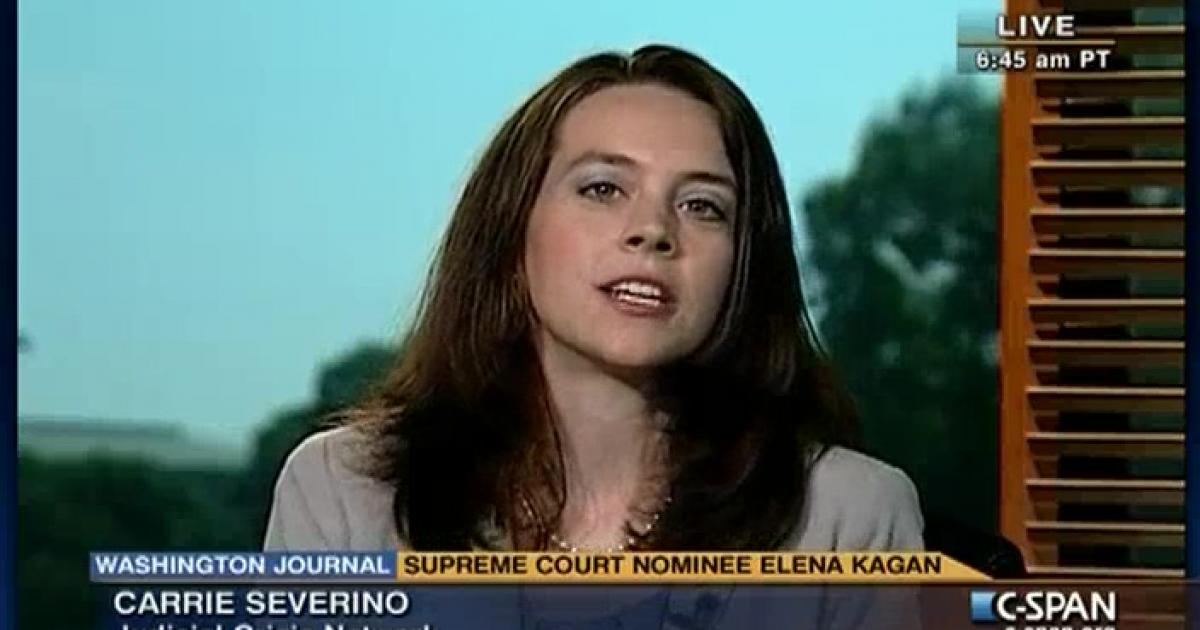Shortly after the election, we noted that the Judicial Confirmation Network, which had been founded with the express purpose of helping to get President Bush’s judicial nominees confirmed, was starting to sing a different tune, proclaiming that the burden would now be upon President Obama and his nominees to prove that they are qualified to sit upon the federal bench and issuing an ominous warning that “senators will be accountable for [their] votes.”
At the time, it appeared as if the JCN’s mission was about to shift from one of working to get judges confirmed to one of working to ensure that they didn’t get confirmed. But in a letter to the editor in the Washington Times, JCN Executive Director Gary Marx says that under President Obama the organization’s mission will remain the same:
The Judicial Confirmation Network was founded, in part, to support the principle that every nominee who goes to the full Senate deserves an up-or-down vote. We did not support this principle out of some amorphous notion of “bipartisanship,” but rather, we believe it is the duty of the Senate to perform its constitutional role in the judicial-selection process. The Constitution is quite clear on this role, and nowhere does it require a supermajority for confirmation of the president’s nominees.
If the Senate abides by the historical procedural rules governing the confirmation process, the Judicial Confirmation Network intends to stick to its principles and urge up-or-down votes – even on nominees we may oppose. It would be quite understandable if Republican senators felt otherwise – most have had extensive experience with Democratic promises of reciprocity.
Of course, the meaning of this pledge relies heavily on what Marx considers to be “the historical procedural rules governing the confirmation process” – Curt Levey of the equally right-wing Committee for Justice suggests that Marx means “those rules include respect for blue slip privileges.”
So now the question becomes which “historical procedural rules” regarding the blue slip does Marx mean; the rules Republicans had in place when Bill Clinton was President or the different ones they implemented when George W. Bush became president?
It was, on the whole, an unusual display of Democratic solidarity. On April 27, all nine Democrats on the Senate Judiciary Committee — backed, according to ranking member Patrick Leahy, by the entire Democratic caucus — signed a letter to White House counsel Alberto Gonzales about George W. Bush’s proposed nominations to the federal bench. “We are not going to be rolled over,” promised New York’s Charles Schumer, who called the letter a “shot across the bow.” The confirmation process, warned Leahy, “may grind to a screeching halt.”
But not because Gonzales and Judiciary Committee Chairman Orrin Hatch were planning to fill several dozen of the nearly 100 vacancies on the federal bench with staunch conservatives. No, the offense at hand was far more grave: At a confirmation hearing in early April, Hatch had hinted that he might change an obscure policy called the “blue slip,” which senators have traditionally used to exercise near-veto power over judicial nominees. During the Clinton years, any one senator could block any candidate from his or her home state (by refusing to return a memo of approval printed, literally, on a blue slip of paper); under George W. Bush, Hatch informed the Democrats, a veto would require the opposition of both home-state senators — a substantial dilution of a treasured prerogative of office.
The JCN says it will continue to press for up-or-down votes on judges that it opposes and so, for now, we’ll just have to take them at their word despite that fact that it seems exceedingly unlikely that it will actually do so once the battle over judicial nominations inevitably heats up.








